If you have furry babies and plant babies, then you need to be careful about mixing the two! Some plants can be toxic to animals and cause health problems if ingested. That's why it's essential to choose plants that are non-toxic and safe for your pets to be around.
In India, we're lucky to have a diverse range of plant species that are both beautiful and pet friendly. There are plenty of options for you to choose from that can add a touch of greenery to your home without posing a risk to your furry friend.
List of Common Pet-Friendly Plants in India
Areca Palm | Spider Plant | Money Plant | Boston Fern | Prayer Plant | Rattlesnake Plant | Moth Orchid | Bird’s Nest Fern | Toxic Houseplant | Lilies | Aloe Vera | Philodendrons | Silk Pothos | Snake plants | ZZ plants | Choosing Pet-Friendly Plant | Planter Recommendation- Areca Palm: The Areca Palm is a popular indoor plant in India, known for its air-purifying properties. It's non-toxic to pets, making it a great addition to pet-friendly homes. To care for your Areca Palm, make sure to place it in a bright, indirect light with a planter. Water the plant once a week, making sure not to overwater it. This plant is believed to bring good luck and prosperity, making it a cultural favorite.
Click on the image to buy
(back to top)
- Spider Plant: The Spider Plant is another air-purifying plant that's easy to care for and is a favourite among veterinarians! It's known for its spider-like leaves that produce baby plants, making it a great option for plant propagation enthusiasts. Place it in bright, indirect light, water it once a week, and mist the leaves regularly to keep it happy and healthy. In India, the plant is believed to bring good luck and is often used in auspicious ceremonies.

(back to top)
- Money Plant: The Money Plant, also known as the Devil's Ivy or pothos, is a popular plant in Indian households due to its unique appearance and air-purifying properties. It is non-toxic to pets and easy to care for, making it a great addition to any home. It can grow in a wide range of soil types and can tolerate periods of drought, making it perfect for beginners. To keep your Money Plant healthy, make sure to avoid overwatering and keep it away from direct sunlight.
Click on the image to buy
(back to top)
-
Boston Fern: The Boston Fern is a lush and leafy plant that's perfect for adding a touch of greenery to any room, and it’s not toxic to your fur babies!
This ancient plant has been popular in households for centuries due to its lacy fronds. It's important to keep it in a cool and humid location, away from direct sunlight. The plant should be watered frequently, making sure not to let the soil dry out completely.

(back to top)
-
Prayer Plant: This is a stunning plant with unique patterns on its leaves.
The leaves of the Prayer Plant fold up at night, resembling hands folded in prayer, which is how it got its name. Caring for the plant is relatively easy, as it prefers indirect light and consistently moist soil. It's non-toxic to pets and can also purify the air.

(back to top)
-
Rattlesnake Plant: Another beautiful choice for a pet-friendly plant is the Rattlesnake Plant, also known as Calathea Lancifolia, which is a popular indoor plant known for its striking foliage and unique patterns.
A fun fact about this plant is that its leaves move up and down depending on the time of day. During the day, the leaves point upwards to absorb as much sunlight as possible, while at night they droop downwards to conserve energy. It is often also used in traditional Ayurvedic medicine.

(back to top)
-
Moth Orchid: The Moth Orchid is a popular and elegant flowering plant, and is absolutely pet-friendly.
When it comes to caring for the plant, it prefers bright, indirect light and consistently moist soil, with high humidity levels. The Moth Orchid is a symbol of love and beauty. It is often used in traditional garlands and flower arrangements for weddings and other celebrations.

(back to top)
-
Bird’s Nest Fern: Bird's nest fern (Asplenium nidus) is a popular houseplant known for its lush, tropical foliage and unique nest-like appearance.
The plant's long, wavy fronds can provide a cozy hiding spot for small animals, but the fern itself is not harmful if ingested. However, it's still a good idea to keep the plant out of reach of curious pets, as excessive nibbling could lead to digestive upset. You could keep it as a hanging plant as well styling it with a beautiful hanging planter.

Bonus Tip: Adding citrus peels to your plant's soil is a great way to keep your pets away from your plants without causing any harm. The scent of citrus is a natural deterrent for pets, and you can easily use this to your advantage by placing lemon or orange peels in your plant's planter. Another benefit of using citrus peels is that they can provide essential nutrients to your plants, helping them thrive and stay healthy. By utilizing this simple trick, you can protect your plants and keep them happy at the same time.
(back to top)
Common Houseplants that are Toxic to Pets
While these plants are found in almost every household due to their benefits and aesthetic appeal, they can be dangerously toxic to your pets. Keep these plants away from your fur babies at all costs!
- Lilies: Lilies are particularly toxic to cats and can cause kidney failure even in small amounts. Symptoms include vomiting, lethargy, and loss of appetite.

(back to top)
- Aloe Vera: Aloe vera is a common houseplant with many health benefits for humans, but it can cause vomiting and diarrhea in pets if ingested. It also contains saponins, which can be toxic to dogs and cats.

(back to top)
- Philodendrons: Philodendrons contain calcium oxalate crystals, which can cause irritation and swelling in the mouth and throat if ingested. Symptoms may include drooling, vomiting, and difficulty breathing.

(back to top)
- Silk Pothos (Ivy): Ivy is another popular houseplant that can cause irritation and vomiting if ingested, with every part of the plant being toxic to pets. It can also cause skin irritation in some pets if they come into contact with the sap.

(back to top)
- Snake Plant: Snake plants are known for their air-purifying properties, but they contain saponins that can cause digestive upset and lethargy in pets if ingested.

Click on the image to buy

(back to top)
-
ZZ plants: ZZ plants are low-maintenance and attractive, but they contain calcium oxalate crystals that can cause oral irritation, drooling, and difficulty swallowing if ingested.
Click on the image to buy
(back to top)
How to Choose the Right Pet-Friendly Plants for Your Home
- Do your research: Before choosing any plants, do your research on which ones are safe for pets. There are many pet-friendly plants available that are not only safe for pets but also provide many benefits, such as air purification.
- Consider your pet's habits: If you have a pet that loves to chew or play with plants, choose plants that are non-toxic and sturdy enough to withstand some roughhousing.
- Placement is key: Make sure to place your plants out of reach of curious pets. Consider hanging plants or placing them on high shelves or tables.
- Choose plants that suit your home environment: Choose plants that can thrive in the light and temperature conditions of your home.
Having pet-friendly plants in your home is a great way to bring a touch of nature indoors while keeping your furry friends safe. With so many pet-friendly plant options available in India, there's something to suit every taste and home environment. Simply remember to do your research before choosing any plants, consider your pet's habits, and provide proper care to keep your plants healthy and thriving. Happy planting!
(back to top)
Planter Recommended for your Indoor Plants
Discover more planters for your pet friendly plants

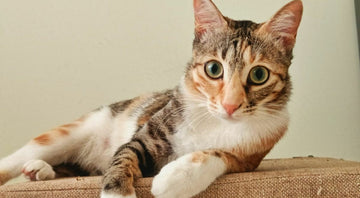



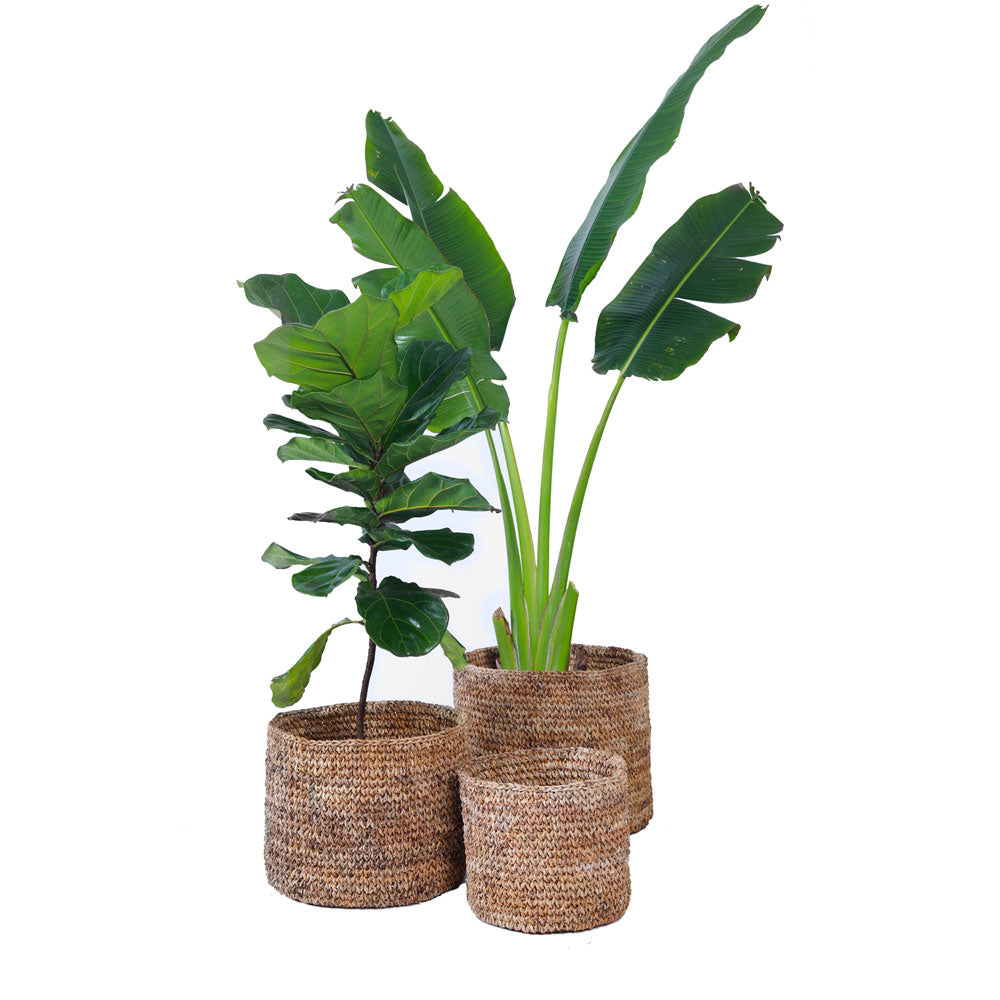
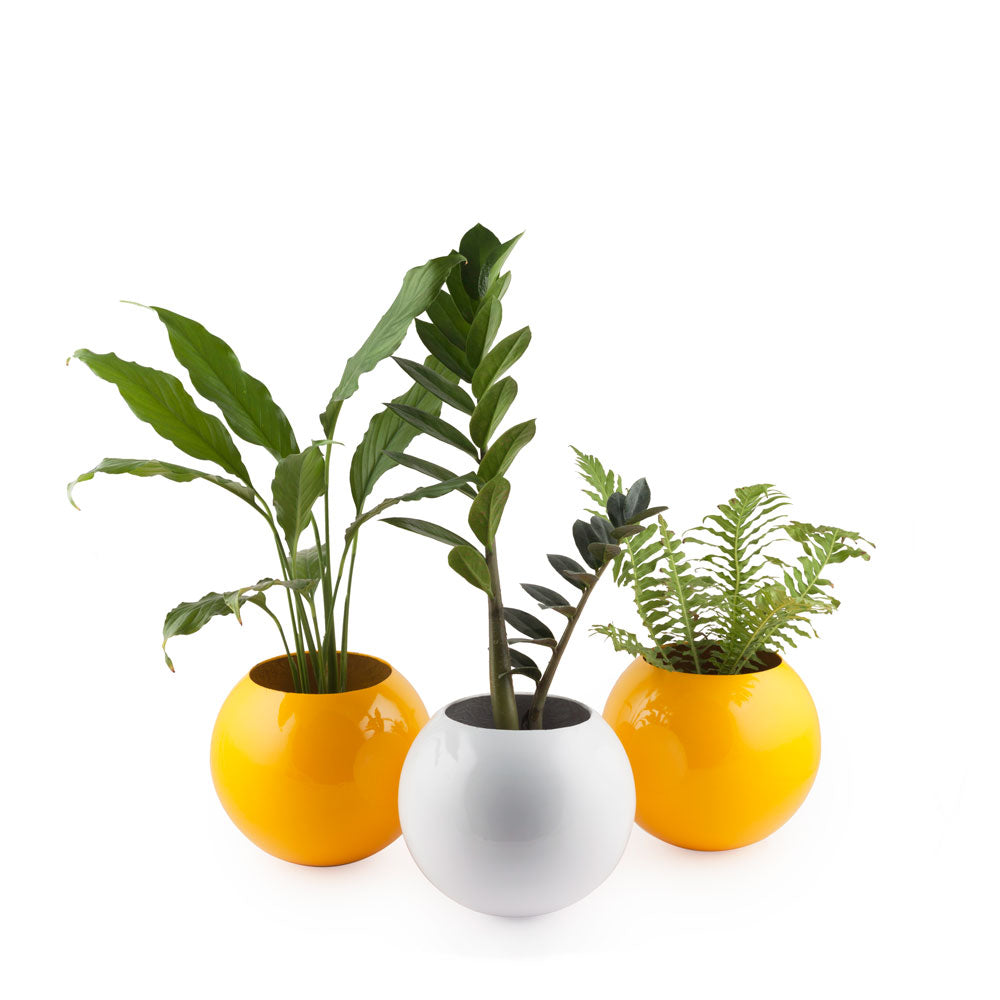
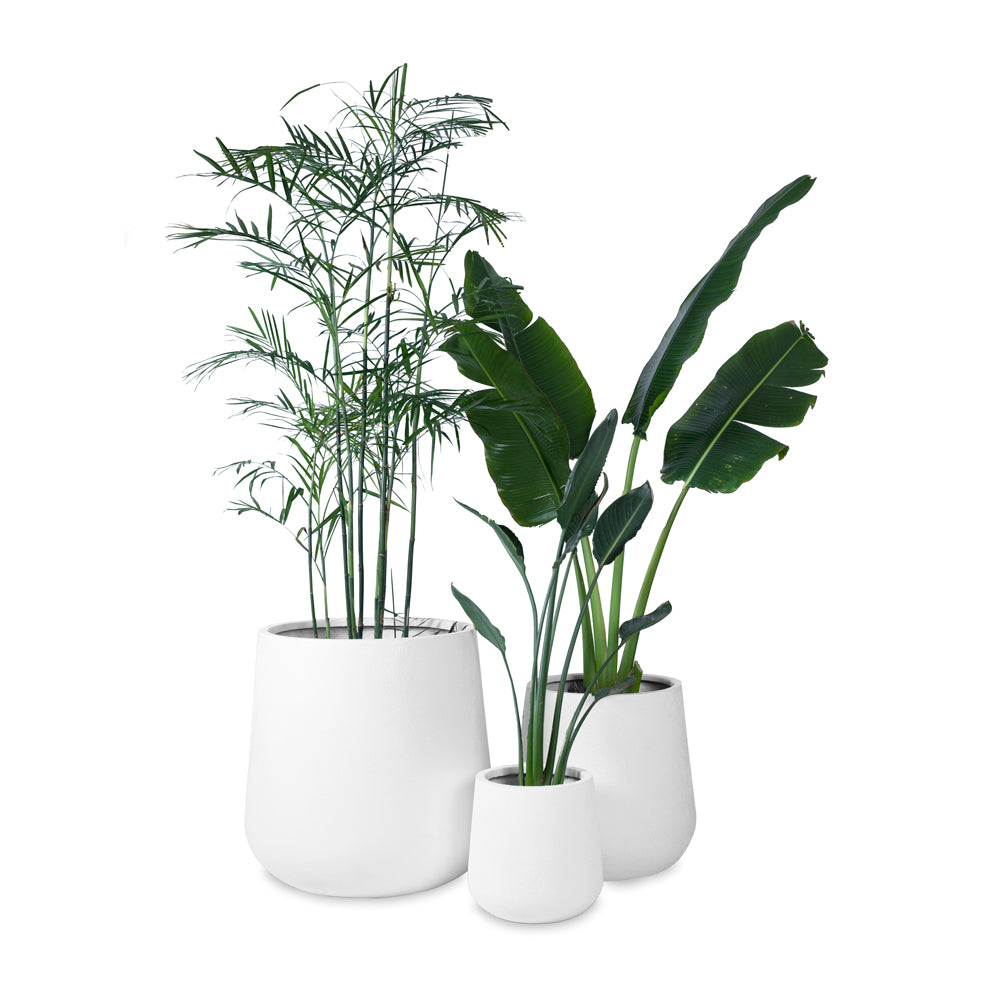
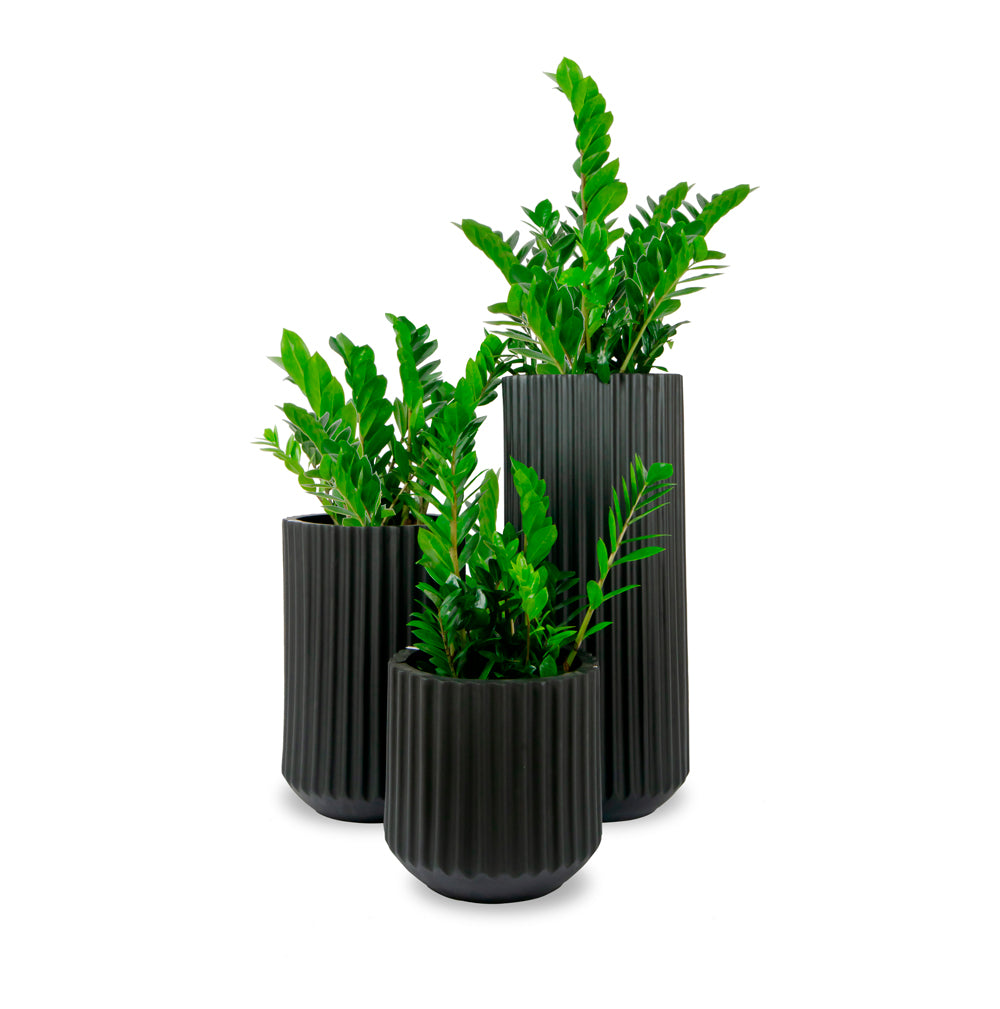

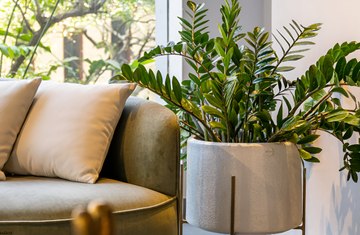

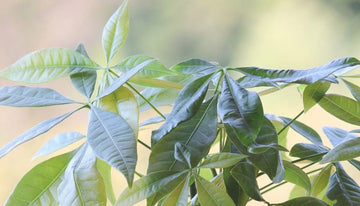
 At Palasa, we believe in the seamless fusion of nature, design and humanity.
At Palasa, we believe in the seamless fusion of nature, design and humanity.